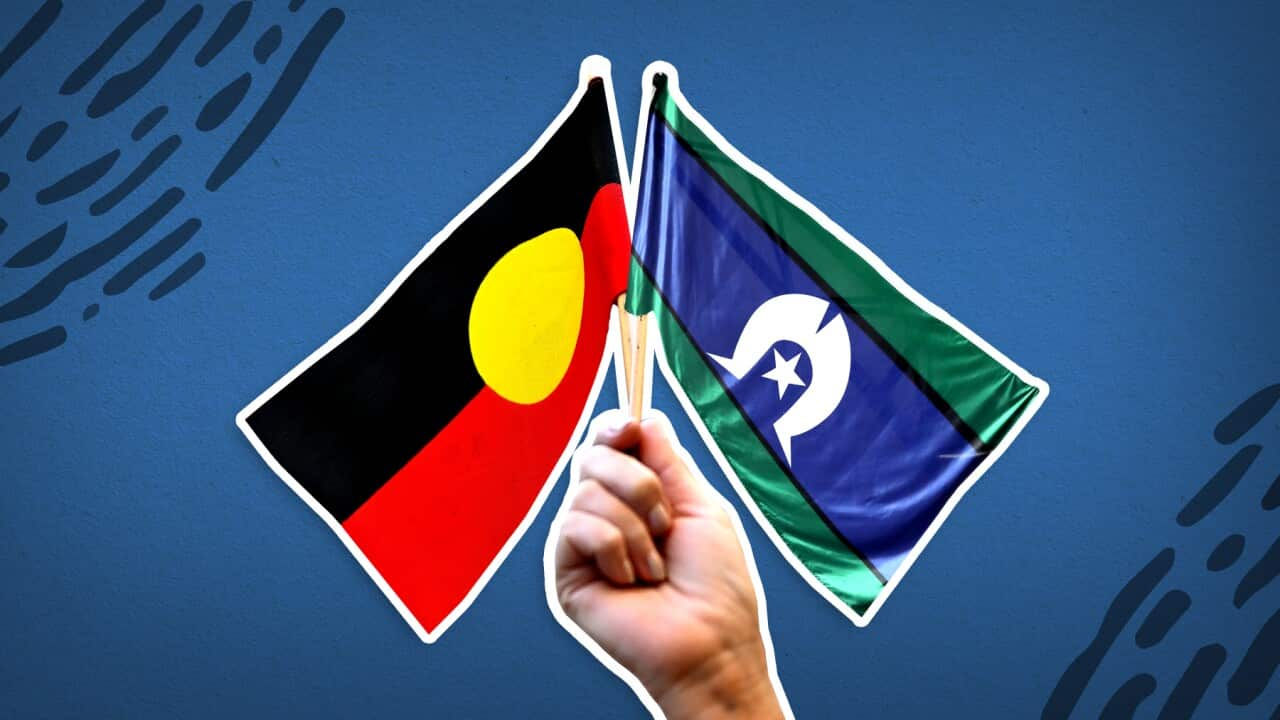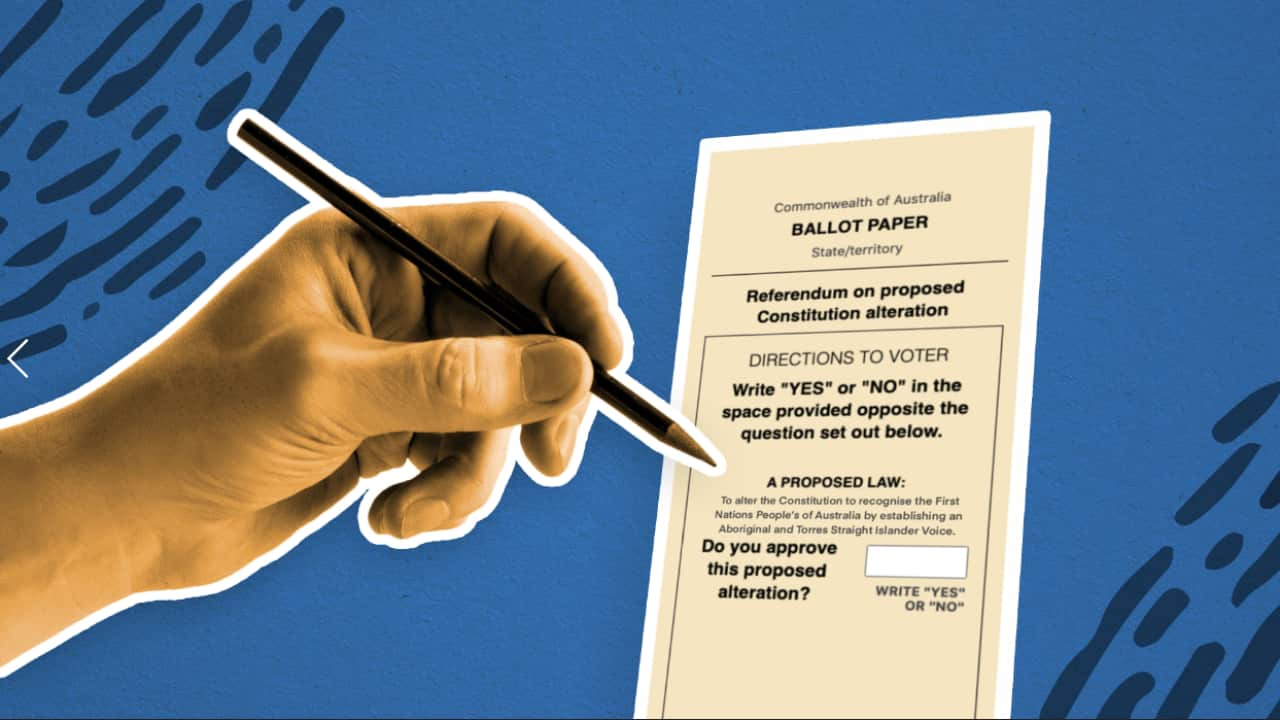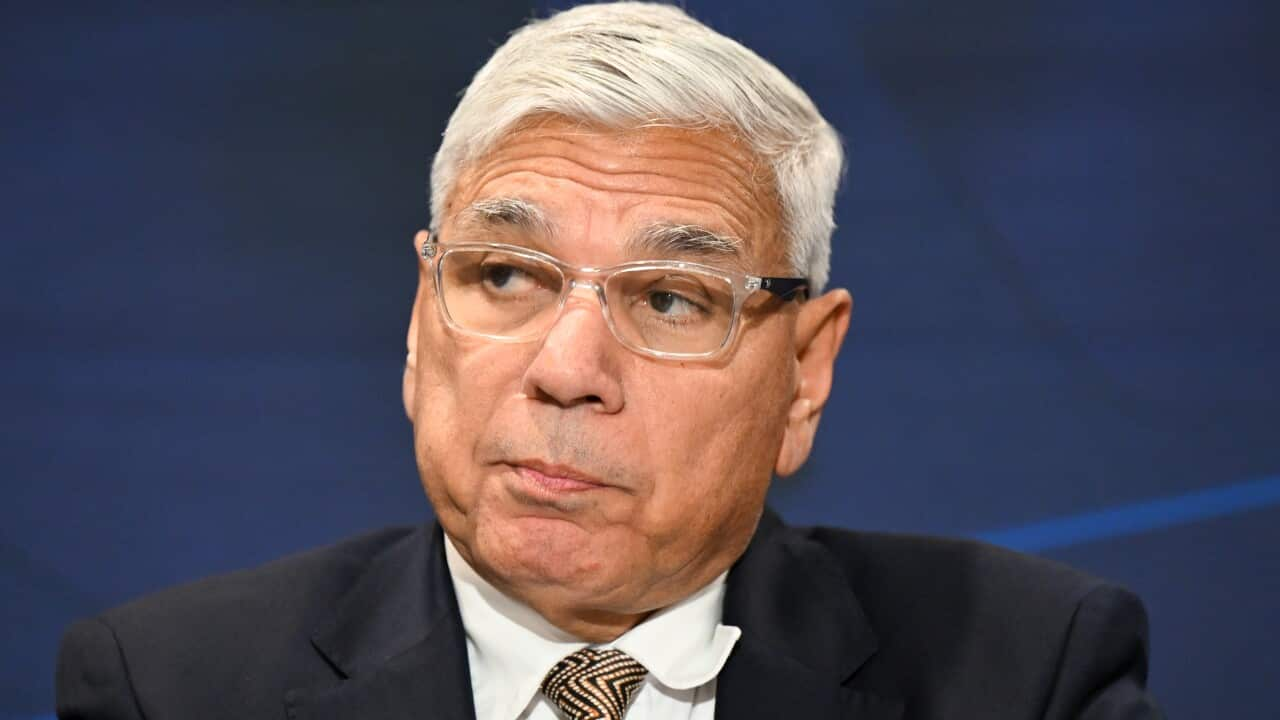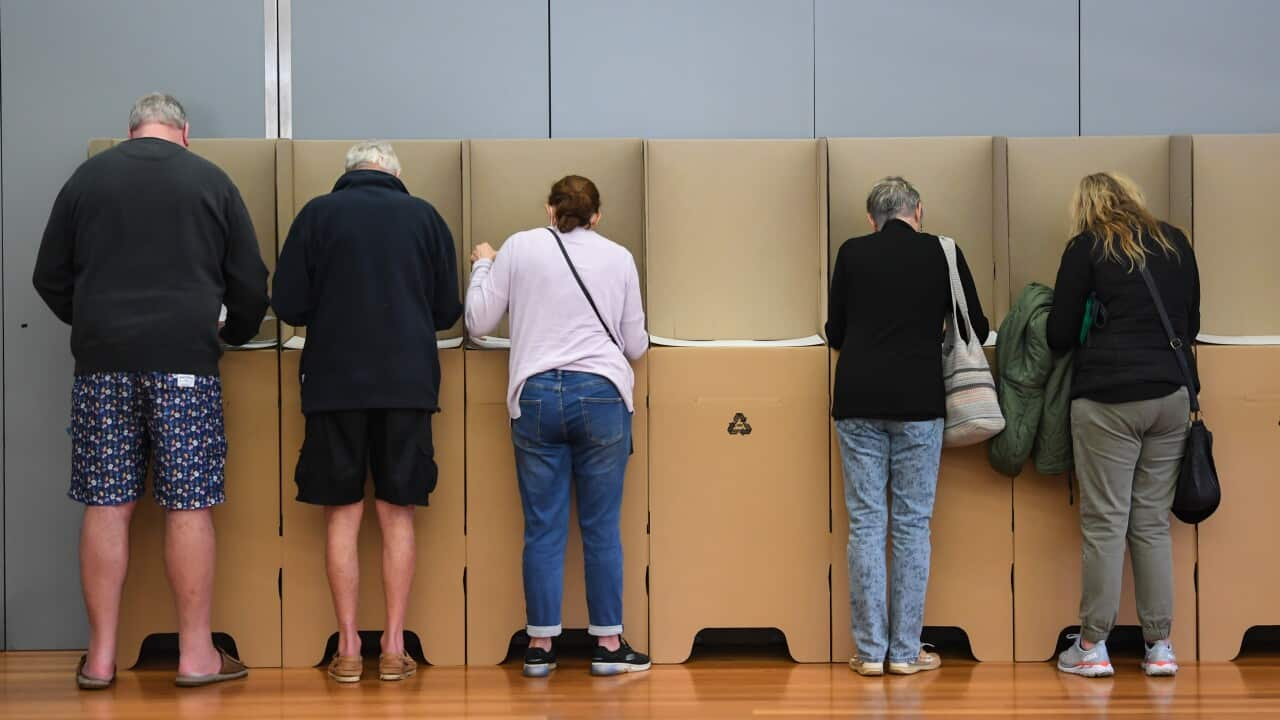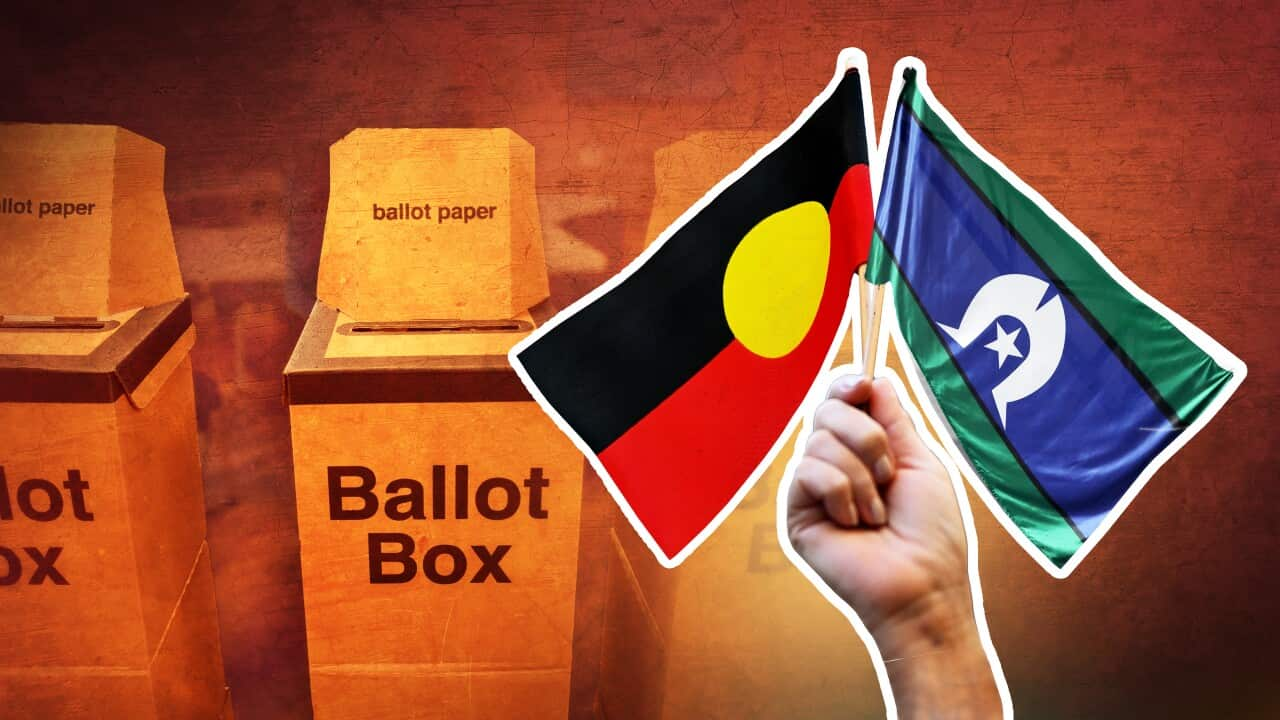The referendum on the Indigenous Voice to Parliament is the first one a lot of us will have voted in, and what post-referendum Australia will look like is unclear. But when it comes to looking beyond 14 October, the "progressive No" camp already has ideas.
The "progressive No" campaign isn't one united group - it's instead supported by different organisations like the Black Peoples Union and .
A key face of the movement has been independent senator Lidia Thorpe, who resigned from the Greens earlier this year to campaign freely on the Voice and act as a spokesperson for the Blak sovereign movement.
Recent polling indicates the country is leaning towards a No vote, though the Yes campaign has gained ground over the past week. So if the Voice isn't enshrined in the constitution, what do progressive No voices want?
Keiran Stewart-Assheton is a Traditional Owner of Waniwandian Country in the Yuin Nation on the NSW south coast, and national president of the Black Peoples Union.
If a No vote were to happen, he wants to see the conversation focus on "demands that we've been asking for for decades now".
The priorities are the recommendations of the Royal Commission into Aboriginal Deaths in Custody and of the Bringing Them Home Report, as well as "our land rights, our calls for self-determination and our calls just for real, tangible impacts and progress for our people".
"While we are opposed to the Voice referendum for various reasons, we do also understand that whether it's a Yes or a No outcome, we have still got a big task ahead of us and we're still going to be organising on October 15th towards our ultimate ends," Stewart-Assheton told The Feed.
What's the significance of the Bringing Them Home Report and the Royal Commission into Aboriginal Deaths in Custody?
The is the result of a 1997 national inquiry into the forced separation of Aboriginal and Torres Strait Islander children from their families. It made 54 recommendations, but a number of these haven't been implemented.
Similarly, the 1991 Royal Commission into Aboriginal Deaths in Custody made more than 300 recommendations for federal, state, and territory governments.
In an interview with ABC's RN Breakfast on 25 September, Lidia Thorpe said she also wants the government to focus on implementing the recommendations of both the royal commission and report - something she has called for consistently.

Lidia Thorpe resigned from the Greens in February. Source: AAP / Mick Tsikas
He said that he had spoken to her about Indigenous deaths in custody and that "it remains a matter of concern for our government".
"We're going to continue to look at those recommendations".
Asked on the radio about what Australia would look like in the wake of a No majority, Thorpe said: “Nothing changes if it’s a Yes or No vote”.
“Our people are still dying at the hands of the system. The system is still racist,” she told the ABC.
Stewart-Assheton agreed with Thorpe to an extent, saying that "whether it's Yes or whether it's No, the reality is it's still going to be a racist nation".
"That being said, we do think that a Yes outcome would have a negative impact even more on our people," he said.
He believes the Voice will undermine First Nations sovereignty and "further pull us away from our cause for self-determination".
Yes23, the official campaign in favour of the Voice, says the Voice will allow First Nations people to be directly listened to by parliament and the government, and mean they're able to propose solutions for issues affecting their communities.
Voice, Treaty, Truth?
The Uluru Statement From The Heart, which first called for the Voice to Parliament, has recommended an order of Voice, Treaty, then Truth.
While Commonwealth countries like New Zealand and Canada have treaties with their Indigenous peoples, Australia doesn't. This is something some campaigners on both sides of the referendum debate would like to see change.
For reference, a Treaty is a binding, formal agreement made between two or more groups. Usually, it also involves at least one sovereign state.
"We don't have one voice," Wayne Wharton, Kooma man and head of the Treaty Before Voice campaign, told The Feed.

Wayne Wharton wants to see treaties for each First Nation. Source: AAP / Jono Searle
He believes that "each sovereign nation that occupies this continent should have the right and the means and the resources to negotiate to the state, local government and the Commonwealth".
The mainstream No campaign, led by groups like Fair Australia and Recognise a Better Way, has said a Voice could lead to a Treaty. But this hasn't been confirmed by the government.
Prime Minister Anthony Albanese told ABC Breakfast in early August that if the Voice were to pass, the government wouldn't look at .
He said the Treaty process was already starting in states and territories, including Victoria, Queensland and the Northern Territory.
Support for a Treaty
There are also a number of Yes supporters who hope to see a Treaty fulfilled after the Voice. For example, the Greens threw their support behind the Voice earlier this year after initially advocating for Treaty first.
On their website, the Greens say "we will be keeping the pressure on to advance Truth and Treaty following the vote".
The First Peoples Assembly For Victoria - an elected body working to create a state-wide Treaty - supports the Uluru Statement from the Heart's call for Voice, Treaty and Truth.
Minister for Indigenous Australians Linda Burney visited the Assembly on 29 September.
"The change is happening. There is a representative body of Victoria, who are leading this discussion and these processes. And you know what, the sky hasn't fallen in," she said.
"And we are seeing justice, we are seeing truth. And I think there is a lot to look towards in Victoria, in terms of where we go nationally as well."
Speaking on NITV's The Point, campaigner Tarneen Onus Williams - who has voted Yes after initially supporting a progressive No vote - said they thought Australia could work towards Treaty and a Voice at the same time.
"In Victoria we had Treaty first, and then we have our Voice, and then we have our truth-telling, which is a different order, but I think on a national scale... I don't think Australia would be ready for that, for a Treaty right now, until we do have a representative body," they said.
They also said we "have to be honest with where we're at, and we are at a referendum".
"But I think it’s important that we do remind the country that we do want self-determination, we do want a treaty, and we want land rights and all these things."
The Black Peoples Union advocates for treaties between different First Nations across Australia.
"The reason for that being that we can have that stronger unity and that stronger bargaining position, and we'll be able to actually have a bit more of a united resistance in our struggle against the colony," Keiran Stewart-Assheton said.
What happens after we vote on 14 October?
Regardless of the referendum's outcome, campaigners will continue their work.
"Australia cannot exist without oppressing and exploiting First Nations people and First Nations lands," Stewart-Assheton said.
What he wants to see is government coming to the table and "talking to us about real demands that will make real changes today".
"Stop deaths, stop children being removed and stop Country being blown up and destroyed."
Wayne Wharton said past governments and prime ministers have let down First Nations people.
"What we would rather like to see out of this whole exercise is, if it comes out as a No or if it comes out as the Yes, whoever wins still has an obligation to correct the wrongs that were done in the 230 years leading up to the Mabo decision."
After the referendum, Stewart-Assheton would "definitely" try to mobilise Yes voters to support the progressive No campaign's goals.
"We're seeing this massive support for the Yes campaign, but where are these people when we need support for our deaths in custody campaigns and for our land rights campaigns and [to] stop (mining company) Santos fracking up in Gomeroi country, for example?" he said.
"They want to talk about supporting First Nations rights and issues, well, we're going to hold them to account and hope that they do come and actually support First Nations rights and issues."
Stay informed on the 2023 Indigenous Voice to Parliament referendum from across the SBS Network, including First Nations perspectives through NITV.
Visit the SBS Voice Referendum portal to access articles, videos and podcasts in over 60 languages, or stream the latest news and analysis, docos and entertainment for free, at the Voice Referendum hub on SBS On Demand.

